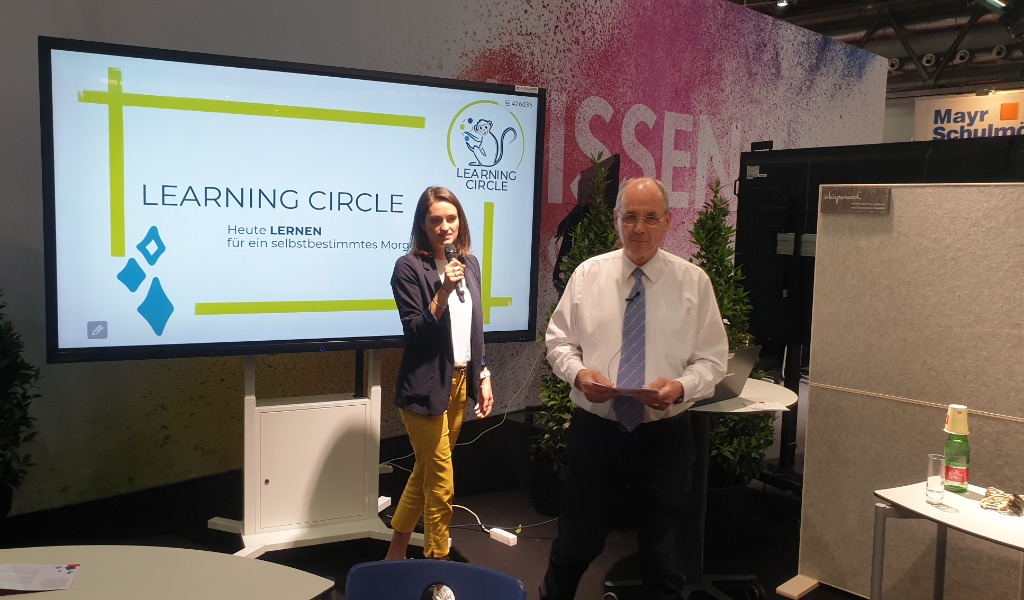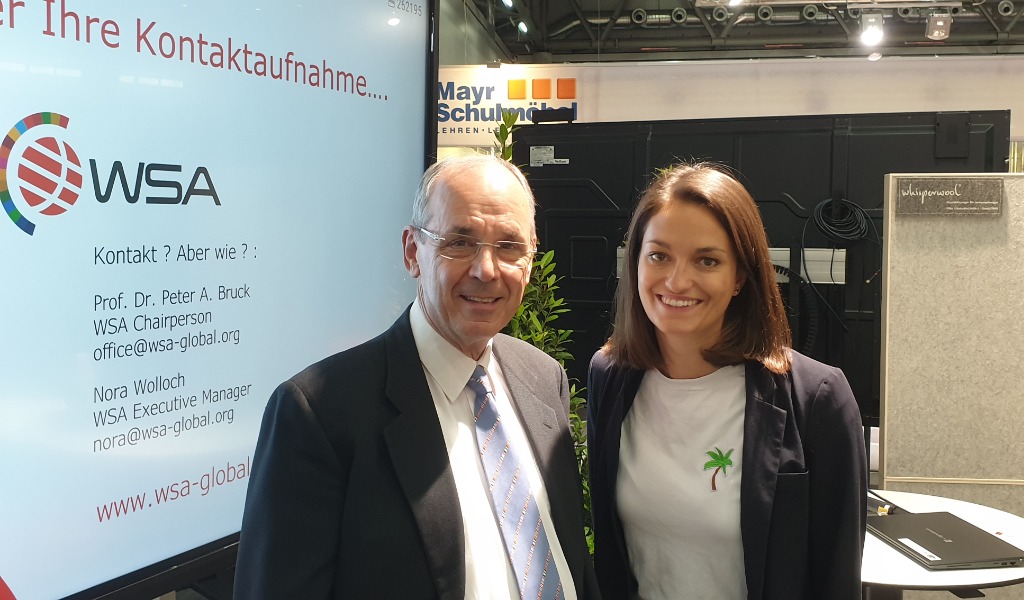The Global Classroom & Digital Divides | Hack the Education Gap
„Education liberates the intellect, unlocks the imagination and is fundamental for self-respect. It is the key to prosperity and opens a world of opportunities.” states Sustainable Development Goal No. 4, Quality Education and points out that education cannot be considered important enough.
With his expertise and special interest in education, Prof. Dr. Peter A. Bruck was invited to share his insights and the trends of nominations in the award category WSA at the Interpädagogica in May 2022 in Vienna, Austria’s trade fair for education. The Interpädagogica gives an informative insight into the whole educational system—from early childhood education to lifelong learning.
“The Global Classroom” presented the connection between digital tools, learning content and realities of life; showcasing WSA winning projects, that make a social impact in the classroom and in virtual space.
The basic idea of the global classroom is to step out of the physical building and look at the reality. Nevertheless, there is not just this one reality that we can look at—there are disparities within a society, different societies in different parts of the world and education always remains a question of accessibility. Digital divides exist worldwide. Technology itself does not indicate the impact; and it is the simplest solutions often achieving the biggest benefits—local circumstances are decisive. Teachers are given a key role to play in this.
Our time is facing special challenges that require careful attention and need to be considered holistically. Thus, the climate crisis is the most urgent challenge, and it turns out that current measures are not enough. Opportunities are a matter of the social situation. Digital technologies are a promise for more equality independent of place and time, but still we are confronted with digital divides.
With a clear focus on the local impact and the usability, WSA awards outstanding ideas, projects and best-practice examples around the world.
The 2017 Learning & Education winner Lab4u changes the perception of laboratories, as it turns smartphones and tablets into science instruments. This lab in your pocket provides experiments in physics, biology, and chemistry.
Augmented Reality for Tourism, a WSA Young Innovators winner in 2020, teaches history with the approach to combine wonder with curiosity and integrate it into the pedagogical context.
The Finnish learning experience Lyfta invites children to become global explorers through immersive experiences and engaging human stories. This storytelling experience offer a great tool for teaching about the UN Sustainable Development Goals.
The online platform Sammtalk from Norway envisions language learning in a social context from the very beginning. Students can practice their language skills, make foreign friends, and learn about life in other places.
The 2022 Global champion Inspirelearn from Malawi offers distance learning for everyone. From the beginning learning is not connected to school. The platform provides an opportunity for simplified offline access to quality educational resources and a safe distance learning alternative for school dropouts, the enrolled learners and those with special needs.
Learning Circle, WSA Austria winning project 2021, is an educational initiative established two years ago that seeks a new concept of self-determined learning. Children need a lot of individual guidance besides school, which rarely has space in the classroom and depends a lot on the possibilities of support from the environment. To compensate for this inequality “Learning Circle” offers 1:1 digital learning (and more) support for 10 to 14 years old. One coach works continuously with one child and becomes an additional reference person. The payment depends on the household income.

Prof. Dr. Peter A. Bruck & Lisa-Maria Sommer-Fein

